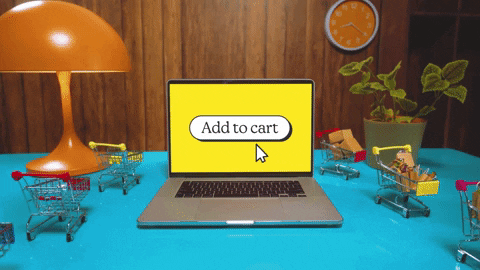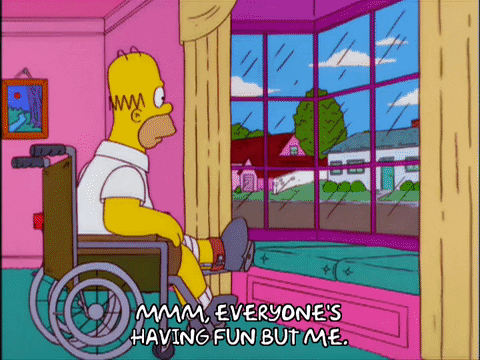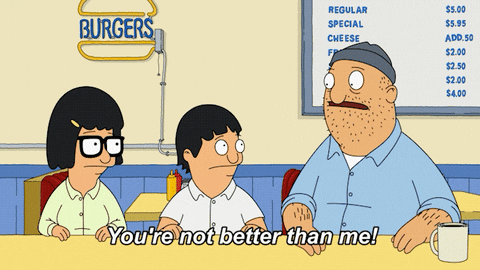4 Ways Social Media is Making You Poorer and What To Do About It
Social media is making us spend more than ever. Learn how to combat your online impulse spending.

Introduction
In the era of social media, our lives are intricately interwoven with digital platforms that influence not just the way we connect but also the way we spend. In this blog, we explore the impact social media has on our spending habits, and how we can combat them to ensure we stay in control of our money.
Social Media Window Shopping
You're scrolling through your favourite social media platform, and there it is – a dazzling display of products, each more enticing than the last. Worst still, they are perfectly tailored to what you love. Advertising used to be a spray and pray approach. Stick an add on television or on a billboard where you think the maximum number of people in the company's target market will be watching or looking. This changed when social media companies developed powerful programmes for analysing your behavioural data. The seamless integration of advertisements and sponsored content turns your feed into a virtual window shopping spree. How often have you found yourself captivated by those perfectly curated images, feeling an irresistible pull toward the latest trends?
What to do about it?
Knowledge is power. Being aware that you are an advertising target when you are scrolling social platforms can go a long way. When you get that little shot of dopamine when you see a product you like, ask yourself this question. "Was I thinking about this product before it popped up on my feed?". This gives you time to really think about it, and very often you will make the decision to scroll on with your money intact.

Fear of Missing Out (FOMO)
Ah, FOMO – a term that resonates with most of us. The fear of missing out on the experiences, products, and trends showcased on social media can be a powerful force. The seemingly urgent need to keep up can lead us down the rabbit hole of impulsive buying decisions, as we chase a lifestyle that appears to be just a click away. What drives FOMO isn't so much adverts on social platforms (though that does play a part) but rather your peers. Most people on social media platforms are posting the highlight reel of their lives. The nice thing they bought or the lovely dinner they had. This culminates in the people consuming this content to feel empty about their own life, driving the FOMO.
What to do about it?
FOMO is simply an assumption that you need to own a certain thing to be as happy as the other people that own that thing. You can combat this by realising that nobody has ever been made truly happy by a thing they own, ever. On the contrary, many people have been made very unhappy by overspending and putting themselves into debt to keep up with a lifestyle they cannot afford. Remember, what makes you happy isn't stuff you own.

Influencers as Friends
In the vast social media landscape, influencers have become like friends who guide us through the choices of life. Whether it's fashion, beauty, tech gadgets, or lifestyle products, their recommendations often feel like advice from a close friend. But how much of our spending is influenced by the personas we follow online? It's worth reflecting on the role these virtual friendships play in our financial decisions.
What to do about it?
It is worth remembering that being an influencer is a career for the most successful ones. The likelihood is that they are being paid by big brands to showcase and review their products or services. Consider how impartial they really are when making the decision to make a purchase.
Social Media Comparison
As we scroll through our feeds, it's impossible not to compare our lives to the highlight reels of others. The picture-perfect moments and possessions showcased online can breed feelings of inadequacy. How often have you found yourself desiring what someone else has, thinking it might hold the key to a more fulfilling life? This pursuit can become a slippery slope, impacting not just our self-esteem but our wallets as well.
What to do about it?
Always remember that you never truly know what another person's life is like. Sure, they could have bought a nice expensive car recently. Do you know whether it was purchased on credit? Have they massively stretched themselves financially? There is a saying that comparison is the thief of all joy. There will always be someone smarter, funnier and richer. Focus on yourself and your own life. Don't buy stuff just because someone else did. It won't fulfil you.

Conclusion
As we navigate the social media landscape, let's bring personal awareness to our online lives. The sparkle of the perfectly curated content, the pull of FOMO, the influence of our digital friends, the pitfalls of comparison – it's all part of the intricate web driven by social media platforms. By embracing a mindful approach to our online interactions, we can navigate life with a greater understanding of its impact on our spending habits. After all, the true richness of life isn't found in the possessions we flaunt online but in the moments and connections that make our offline world truly meaningful.